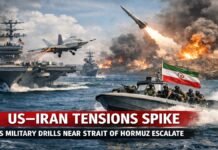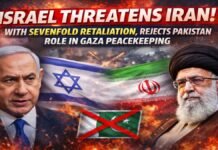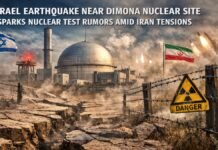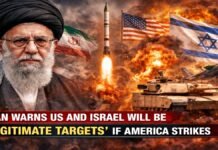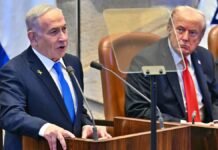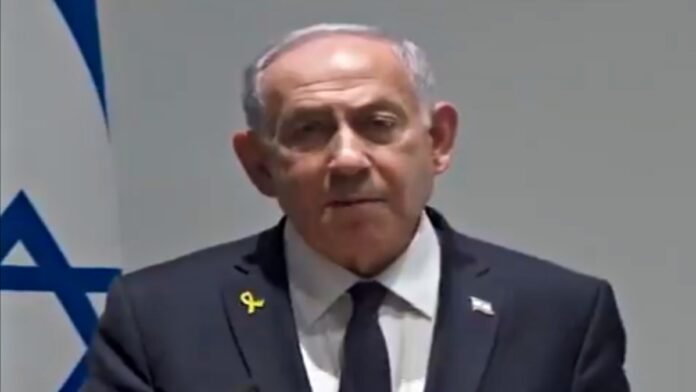
Key Points:
- Israeli Defense Forces (IDF) have conducted airstrikes on alleged Hamas bases in Doha, the capital of Qatar.
- Israeli PM Benjamin Netanyahu defended the attack, comparing it to the US hunt for Osama bin Laden after the 9/11 attacks.
- Israel accuses Qatar of providing a safe haven and support to senior Hamas leaders, justifying the targeting.
- Qatar has fiercely condemned the strike, with its Prime Minister calling for “collective steps” from Muslim nations against Israel.
- The attack has drawn international criticism, including from Indian PM Narendra Modi, who called it a violation of Qatar’s sovereignty.
Jerusalem: The long-running conflict between Israel and Hamas has dramatically escalated, expanding its geographic scope as the Israeli army carried out unprecedented airstrikes on what it described as Hamas bases in Doha, the capital of Qatar. The move marks a significant and dangerous new phase in the war, directly targeting the political leadership of Hamas within the territory of a sovereign nation that has long been accused by Israel of sheltering the group.
The strikes have sent shockwaves across the Middle East, threatening to ignite a wider regional conflict and drawing sharp condemnation from global powers.
I say to Qatar and all nations who harbor terrorists, you either expel them or you bring them to justice. Because if you don’t, we will pic.twitter.com/nlYa7r1OPi
— Benjamin Netanyahu – בנימין נתניהו (@netanyahu) September 10, 2025
Netanyahu Justifies Attack, Drawing Parallel to 9/11
Facing a storm of international criticism, Israeli Prime Minister Benjamin Netanyahu issued a staunch defense of the operation. In a video statement posted on the social media platform X, Netanyahu drew a direct parallel between the strikes in Doha and America’s response to the September 11, 2001, terrorist attacks.
“What America did after the terrorist attack of September 11, 2001, we have also done the same. We have also eliminated terrorists like America,” Netanyahu stated, framing the action as a necessary counter-terrorism measure.
He issued a stark warning directly to Qatar, which has hosted Hamas’s political office for years. “If Qatar wants to save Hamas leaders, then stop giving them shelter, otherwise their end is certain,” the Israeli leader declared, making it clear that Israel will not hesitate to strike Hamas leadership wherever they are found.
International Condemnation, Including from Allies
The attack on a sovereign nation has been met with widespread condemnation. In a significant diplomatic development, Indian Prime Minister Narendra Modi, who has maintained a close relationship with Netanyahu, strongly criticized the Israeli action. He described the strike as an attack against Qatar’s sovereignty, a sentiment echoed by several other nations. This criticism from a key ally highlights the diplomatic tightrope Israel is walking and the potential for international isolation.
Qatar’s Fiery Response and Call for Unity
Qatar has reacted with fury to the violation of its territory. Qatar’s Prime Minister and Foreign Minister, Sheikh Mohammed bin Abdulrahman bin Jassim Al Thani, delivered a stern warning, stating that it is now imperative for the region to take “collective steps” to confront Israel’s escalating aggression.
In a powerful appeal, Thani urged other Muslim countries to unite and take strict action against Israel, signaling Qatar’s intent to rally a regional coalition. This raises the alarming possibility of a coordinated diplomatic or even military response from a bloc of nations against Israel.
A New, Dangerous Front in the Middle East
The airstrikes in Doha represent a calculated risk by Israel. While the immediate goal was to target Hamas’s command and control structure, the long-term consequences could be severe.
- Regional Escalation: The attack could provoke direct retaliation from Qatar and draw in other regional powers, potentially leading to a multi-front war.
- Strained Alliances: By striking a nation that hosts a major U.S. military base and is a key player in regional diplomacy, Israel has put its relationship with the United States and other Western allies under immense pressure.
- Future of Mediation: Qatar has played a crucial role as a mediator in past conflicts between Israel and Hamas, including negotiations for hostage releases. This attack may have irrevocably damaged that channel.
The situation in the Middle East is now more volatile than ever. Israel’s decision to extend its military operations into Qatar has crossed a red line for many, and the world now watches anxiously to see how Qatar and its allies will respond.





